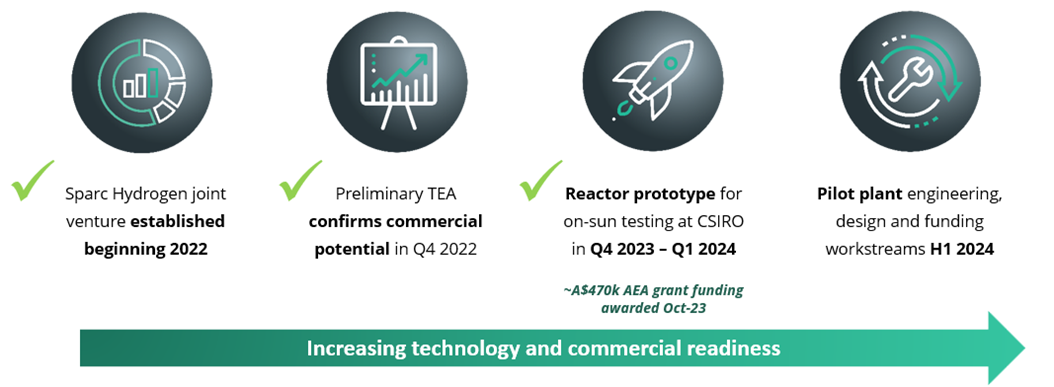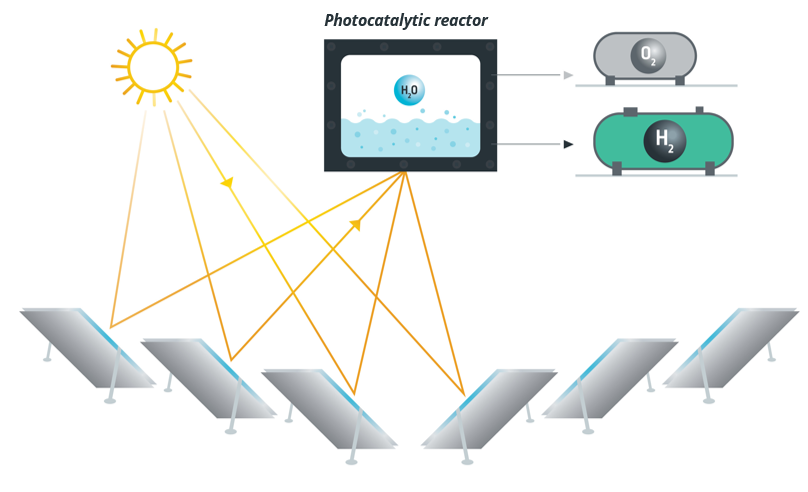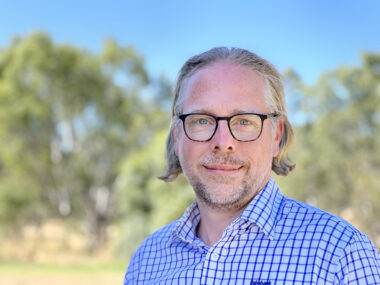HIGHLIGHTS
- Collaboration Framework Agreement entered into with Shinshu University in Japan, a leading developer of photocatalyst materials, targeting pilot testing
- University of Adelaide provides in-principle support to locate the green hydrogen pilot plant at its Roseworthy Campus, located ~50km north of Adelaide, South Australia
- Pilot scale reactor design well progressed
Sparc Technologies Limited (ASX: SPN) (Sparc, Sparc Technologies or the Company) is pleased to advise that Sparc Hydrogen, a joint venture between Sparc Technologies, the University of Adelaide and Fortescue, has progressed several key workstreams that de-risk the development of a pilot plant, including signing a Collaboration Framework Agreement with Shinshu University in Japan.
Other key activities and milestones achieved over recent months with respect to the pilot plant include securing an in-principle agreement from the University of Adelaide to locate the plant at its Roseworthy Campus and progressing the detailed design and engineering for the pilot scale water splitting reactor which seamlessly integrates with the chosen linear Fresnel concentrated solar field.
Each of these milestones represents material de-risking of the pilot plant development workstreams building on from the pre-FEED study and the successful prototyping work completed at the CSIRO Energy Centre in early April 2024 (ASX Announcement 9 April 2024). In parallel, work continues in the laboratory to test and optimise Sparc Hydrogen’s photocatalytic water splitting reactor under a range of conditions using different photocatalyst materials. A decision to proceed with the pilot plant remains subject to Sparc Hydrogen board approval.
Sparc Technologies Managing Director, Mr. Nick O’Loughlin, commented:
"Sparc is delighted with the progress that the Sparc Hydrogen team has made over recent weeks and months with respect to key development workstreams for the pilot plant.
In particular, formalising a relationship with Shinshu University providing a collaboration for the supply of their world-leading photocatalysts for testing in Sparc Hydrogen’s reactors, is a significant milestone.
I would also like to thank the University of Adelaide for their ongoing support, as evidenced by the in-principle decision to locate the pilot plant at Roseworthy Campus.”
Shinshu University Special Contract Professor, Kazunari Domen, commented:
"Shinshu University is pleased to collaborate with Sparc Hydrogen on the research, development and field testing of a concentrated sunlight water splitting photocatalytic reaction system.
Such reaction environments have not been tested at Shinshu University before, and we are very interested to see what kind of activity and reaction characteristics our photocatalyst will exhibit.
The knowledge gained will be important for the scale-up of the reactor."
Collaboration Framework Agreement
Sparc Hydrogen has executed a Collaboration Framework Agreement (CFA) with Shinshu University (Shinshu) in Japan.
The CFA has been entered into to further each party’s work in advancing photocatalytic water splitting (PWS) as a method to produce green hydrogen at commercial scale.
The CFA sets out the principal terms on which the parties have agreed to explore collaborations and pursue negotiations regarding the use of photocatalysts developed by Shinshu in solar reactors developed by Sparc Hydrogen.
The provision of photocatalysts by Shinshu to Sparc Hydrogen will be governed by the terms of separate binding project agreements on terms to be agreed between the parties.
Shinshu University is a key participant in Japan’s ARPChem project, a collaborative research initiative backed by Japan’s New Energy and Industrial Technology Development Organization (NEDO) which has demonstrated the feasibility of producing hydrogen through photocatalytic water splitting on an area scale of 100m² over a greater than 12 month period.
Participants in ARPChem include the following Japanese companies and universities/research institutes:
- Companies: INPEX Corporation, JX Nippon Mining & Metals Corporation, Dai Nippon Printing Co., Ltd., Dexerials Corporation, Toray Industries Inc., Toyota Motor Corporation, Nippon Steel Corporation, Furuya Metal Co., Ltd., Mitsui Chemicals, Inc. and Mitsubishi Chemical Corporation.
- Universities and Research Institutes: Kyoto University, National Institute of Advanced Industrial Science and Technology, Shinshu University, The University of Tokyo, Tokyo University of Science, Tohoku University, Nagoya University and Yamaguchi University.
Site Selection
The University of Adelaide has provided Sparc Hydrogen with in-principle support to locate the pilot plant at its Roseworthy Campus, located ~50km north of the Adelaide CBD.
Roseworthy was assessed among several other sites in Adelaide and regional South Australia and was deemed the highest-ranking site considering a range of criteria.
Key factors in this assessment included infrastructure access, proximity for researchers and other key stakeholders, and relative control over obtaining requisite approvals.
The pre-FEED study completed in late 2023 was based on locating the plant at Roseworthy, although this did not factor into the site selection criteria.
Roseworthy Campus is wholly owned by the University of Adelaide and is predominantly used for undergraduate teaching, postgraduate training, research and clinical services.
The Campus is located on a 1,600 ha property, which includes a working farm, and has an international reputation for excellence in dryland agriculture, natural resource management and animal production.
Securing the proposed site at Roseworthy is contingent on a formal lease agreement between the University of Adelaide and Sparc Hydrogen.
PWS Reactor Design and Engineering
Over recent months, Sparc Hydrogen has significantly progressed the design and engineering of a pilot scale PWS reactor.
Sparc Hydrogen has been working collaboratively with a chosen equipment supplier to ensure the reactor’s compatibility with their solar field design.
The team has also identified manufacturing capability within Australia to support local construction of the PWS reactors.
The recent prototype testing completed at CSIRO Energy Centre provides confidence in the underlying design principles for the pilot scale reactor.
Stage 1 Development Milestones
Link to Media Release: Sparc Hydrogen Progresses Pilot Plant Development
About Sparc Hydrogen
Sparc Hydrogen is a joint venture between Sparc Technologies, the University of Adelaide and Fortescue developing next generation green hydrogen technology using a process known as photocatalytic water splitting (PWS). This process requires only sunlight, water and a photocatalyst to produce green hydrogen, without an electrolyser. Sparc Hydrogen’s patent pending reactor utilises concentrated sunlight to improve the economics of PWS and to deliver a modular, scalable system. Given lower infrastructure requirements and electricity use PWS has the potential to deliver a cost and flexibility advantage over electrolysis.
Sparc Hydrogen schematic demonstrating combination of concentrated solar and photocatalytic water splitting
Key Facts:
· Collaboration Framework Agreement entered into with Shinshu University in Japan, a leading developer of photocatalyst materials, targeting pilot testing
· University of Adelaide provides in-principle support to locate the green hydrogen pilot plant at its Roseworthy Campus, located ~50km north of Adelaide, South Australia
· Pilot scale reactor design well progressed
About us:
About Sparc Technologies
Sparc Technologies Limited (‘Sparc’, ASX: SPN) is an Australian company pioneering new technologies to disrupt and transform industry while seeking to deliver a more sustainable world. Sparc has established offices in Australia, Europe and North America and is focused on three core areas of technology development.
1. Sparc has spent over 5 years developing a graphene based additive product, ecosparc®, which has demonstrated up to 40% anti-corrosion improvement in commercially available epoxy-based coatings. Sparc recently commissioned a manufacturing facility to produce ecosparc® and is engaging with global coatings companies to commercialise the technology.
2. Sparc is a majority shareholder of Sparc Hydrogen which is a company pioneering the development of photocatalytic water splitting (‘PWS’) green hydrogen production technology. PWS is an alternative to producing green hydrogen via electrolysis, using only sunlight, water and a photocatalyst. Given lower infrastructure requirements and energy use, the process has the potential to deliver a cost and flexibility advantage over electrolysis.
3. Sparc is also developing sustainable sodium ion battery anode technology derived from agricultural bio-waste materials.
For more information please visit: sparctechnologies.com.au
For more information about ecosparc® please visit: ecosparc.com.au
For more information about Sparc Hydrogen please visit: sparchydrogen.com
Contact details:
|
Nick O’Loughlin Managing Director
|
Mark Flynn +61 416 068 733 |



